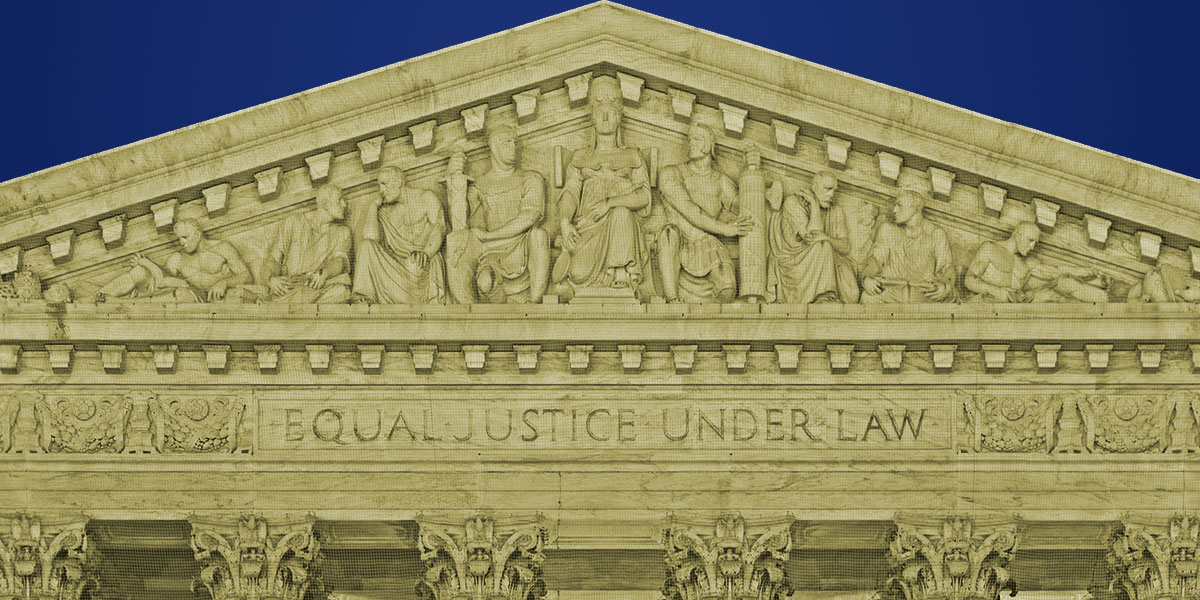- Get link
- X
- Other Apps
- Get link
- X
- Other Apps

Supreme Court Decision on Age Verification Tramples Free Speech and Undermines Privacy
In a decision that sends shockwaves through the digital landscape, the Supreme Court has ruled on Free Speech Coalition v. Paxton, a move that the Electronic Frontier Foundation (EFF) believes directly undermines the free speech rights of adults. This ruling opens the door for states to implement stringent age-verification measures, potentially impacting countless internet users.
The Court stated that "no person—adult or child—has a First Amendment right to access speech that is obscene to minors without first submitting proof of age." This precedent allows states to enforce age-verification rules that could:
- Block adults from accessing lawful speech.
- Curtail anonymity online.
- Jeopardize data security and privacy.
EFF argues that these are substantial burdens on adults, which the Court seemingly overlooked in upholding Texas’ law.
What the Court Said: Texas HB 1181 Upheld
In a 6-3 decision, the Court deemed Texas’ HB 1181 constitutional. This law mandates that websites deemed by Texas to contain “one-third” or more of “sexual material harmful to minors” must verify the age of all visitors. This means providing personal information, even to access the remaining two-thirds of content that is not adult-oriented.
This decision stands in stark contrast to the 1997 ruling in Reno v. American Civil Liberties Union, where the Supreme Court struck down a federal online age-verification law within the Communications Decency Act. The Reno case highlighted that such laws could prevent users from accessing constitutionally protected speech, forcing websites to implement age verification or shut down entirely.
Shifting Scrutiny: A Lower Standard for Free Speech?
Previously, laws restricting adults’ access to lawful speech were subject to “strict scrutiny” under the First Amendment, requiring the law to be narrowly tailored and the least speech-restrictive means available. However, this has now changed.
The Court now applies “intermediate scrutiny” to laws burdening adults’ access to sexual materials obscene to minors. Under this lower standard, the Texas law passes constitutional muster, without requiring the Court to consider less restrictive alternatives, such as parental content-filtering software.
The Flawed Analogy: Online vs. In-Person Age Checks
The Court’s reasoning hinges on a flawed analogy, equating online age verification with showing an ID in a brick-and-mortar store. However, as EFF argued in its amicus brief, online verification is far more burdensome and invasive.
Websites must require users to upload data-rich government-issued IDs, creating serious concerns about:
- Anonymity: Undermining the right to anonymous internet browsing.
- Privacy: Risking exposure of personal information.
- Security: Increasing vulnerability to data breaches.
A Broken Agreement: What This Means for the Future
The Supreme Court’s decision disrupts a long-standing understanding: the government shouldn't impede access to First Amendment-protected material. This ruling will likely spur similar legislation in other states.
In fact, two dozen states already have similar laws, some with no limit on the percentage of adult material required before the law applies. This could force many U.S.-based websites to implement age verification or block users in those states.
Users may resort to VPNs or alternative sites, while others may simply forgo accessing the content altogether. EFF also worries about states broadening the definition of “harmful to minors” to target specific groups or viewpoints.
EFF’s Continued Fight
Importantly, the ruling doesn't grant carte blanche for age-verification regulations across the entire internet. The decision focuses on minors’ lack of a First Amendment right to access obscene sexual material.
The same logic doesn't apply to general-audience sites like social media, where both minors and adults have coextensive rights to speak and access information.
Free Speech Coalition v. Paxton represents a significant shift in online speech regulation. It underscores the critical need to strengthen our defenses of privacy, security, and free speech as fundamental principles of the internet.
The Electronic Frontier Foundation remains committed to fighting for these rights and ensuring a free and open internet for all.
Tags: Free speech, Paxton, First Amendment, Age verification, Texas law, Online access, Data security, Privacy, Internet users, Sexual material, EFF, Supreme Court, Censorship, Digital Rights
Source: https://www.eff.org/deeplinks/2025/06/todays-supreme-court-decision-age-verification-tramples-free-speech-and-undermines
Age verification
Data security
First Amendment
free speech
Internet users
Online access
Paxton
Privacy
Sexual material
Texas law
- Get link
- X
- Other Apps
Comments
Post a Comment